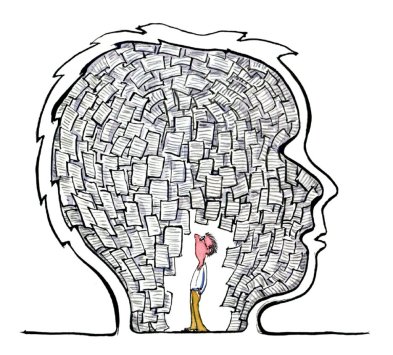By using the Most common personality adjectives you are able to describe the personality of a person you know.
- I am putting-up the full document here for usage of Intermediate/Advanced students of our Learn English program at T.r.i.c.k.s
- Use these words as you Learn to speak in English – to communicate your views better… be careful with the negative words.
- Do make 2/3 sentences using each one of them and speak them out in the role-plays given to you in the class.
Most common personality adjectives (from the Document)…
The character traits described by the personality adjectives under ‘Section a’ below are considered to be “good” or positive by most English speakers. The list under ‘Section b’ is for some negative personality traits. This is generally true but remember that words are often used subjectively. For example, “determined” is shown here as a positive personality adjective, while “stubborn” has got a negative connotation (the literal meaning of both is very similar). Use them in your everyday speech/writing…… Make 2-3 sentences of ‘your own’ on each and relate them with a person you know to Learn and remember them… have fun!
a) Adjectives that Describe people Positively
adaptable, adventurous, affectionate, agreeable, ambitious, amicable, amusing, brave, bright, broad-minded, calm, careful, charming, conservationist, compassionate, considerate, courageous, courteous, creative, decisive, determined, diligent, diplomatic, dynamic, easygoing,
emotional, energetic, enthusiastic, extroverted, fair-minded, faithful, fearless, forceful, frank, friendly, funny, generous, gentle, good, hard-working, helpful, humorous, imaginative, impartial, independent, intellectual, intelligent, kind, loving, loyal, modest, neat, nice, optimistic, passionate, patient, persistent, philosophical, polite, powerful, practical, pro-active, quick-witted, quiet, rational, reliable, reserved, resourceful, romantic, self-confident, self-disciplined, sensible, sensitive, shy, sincere, sociable, straightforward, sympathetic, thoughtful, tidy, tough, unassuming, understanding, Tactful, versatile, warmhearted, willing, witty
b) Describe people negatively (Please take care in using them; even with the people you don’t like… they can be your best friends too!)
aggressive, arrogant, boring, bossy, careless, changeable, compulsive, cruel, cunning, detached, dishonest, dogmatic, domineering, flirtatious, foolish, fussy, greedy, harsh, impatient, impolite, inconsistent, indecisive, inflexible, interfering, intolerant, introverted, irresponsible, jealous, lazy, mterialistic, mean, miserly, moody, narrow-minded, nasty, naughty, nervous, obsessive, over-emotional, pessimistic, possessive, rude, ruthless, sarcastic, secretive, selfish, short tempered, silly, stubborn, stupid, superficial, Superstitious, Tactless, timid, touchy, thoughtless, unkind, unpredictable, unreliable, untidyuntrustworthy
T.r.i.c.k.s and Tips to Learn them, remember them and use them in describing a person and comparing two or more people:
1. Try to understand 5 per day and relate them with a person you know…. you may even relate them with an Animal e.g. ‘clever like a fox’
2. Think of 5 that you associate yourself strongly with and write down some examples of when you used that personality trait
3. Play the alligation game of assigning a ‘negative word’ to a fellow student… it’s just a game to take it lighlt and explain how and in what situations you are not that
4. Compare popular characters from the films or political parties on the personality that they display
5. Enjoy using them and associating good personality words to people in yous family, friends and colleagues. You will see a change in their behavior as well!
Share with Friends to Earn 'Brownie Points'





